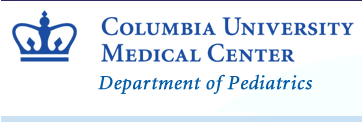| Program Overview:
Community Pediatrics aims to enlarge the focus of care from one child
to all children in the community. We challenge the traditional methods
of resident education and service by creating meaningful academic
and community-based partnerships and designing and implementing population
health initiatives that address major threats to children's health.
Three core concepts--community health, cultural competency, and advocacy--are
integrated into all three years of residency training. For residents
with a particular interest in community pediatrics, an enhanced experience
fosters the development of future leaders in the field. The overarching
and unique methodology of our curriculum is the utilization of service-learning,
a structured learning experience that combines community service with
explicit learning objectives, preparation, and reflection. Pediatric
residents not only provide direct service but are expected to learn
about the context in which the service is provided, the connection
between the service and their academic coursework, and their role
as citizens
Mission/ Goals:
By the end of three years of training, pediatric residents will:
• be able to look at health from a population
perspective
• understand social determinants of health
• learn principles of maternal child health
• improve communication skills and learn basic tenets of health
literacy
• be introduced to the concepts of legislative advocacy
•develop the skills to provide health education in a variety
of community-based settings
Number of people served per year:
• 60 general pediatric residents
• 8 – 10 Community Pediatric Track Residents
Outcomes/ Results:
• 200 residents trained in Community pediatrics
over the last 10 years
• 20 residents successfully completed community health projects
during their residency
• Numerous abstracts presented at national meetings and CATCH
grants received by community pediatric residents
• Community members served at large through resident health
education talks in community settings, home visits, and curriculum
development for multiple community based organizations
Partners:
• Children's Health Fund (Mobile Van Unit)
• Ft. George Community Enrichment Center Head Start Program
• Manhattan Safety City /Access Safety City
• Mott Haven Academy Charter School
• New York Foundling
• Project DOCC (parents of children with special health care
needs)
• Riverdale Lactation Center
• WIC
Contact Information:
Faculty Lead/Medical Directors
Dodi Meyer, MD
Associate Clinical Professor Pediatrics
Phone: 212-305-0903
Email: ddm11@columbia.edu
Anne Armstrong-Coben, MD
Assistant Clinical Professor Pediatrics
Phone: 212-305-6627
Email: aha2@columbia.edu
|


 |








